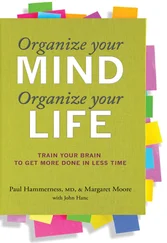I am not an autobiographical writer—one cannot be without a solid and explicable self—and read all autobiographical writers with the same curiosity. What kind of life permits a person the right to become his own subject?
Though I had read McGahern’s memoir before, and knew that it would not provide an answer, I brought it for the trip. A painful childhood, losing his mother at a young age, growing up under a violent and volatile father, his exile from Ireland and his return—all of this he writes about plainly, showing off none of the literary ventriloquism of many of his countrymen. No one’s vulnerability is more devastating than the next person’s, no one’s joy more deserving. What happens to McGahern is only life, which happens to us all.
Harder to endure than fresh pain is pain that has already been endured: a reminder that one is not far from who one was. Why write to open old wounds. Why relive a memoir, when that too is an indulgence.
—
A WORD I hate to use in English is I. It is a melodramatic word. In Chinese, a language less grammatically strict, one can construct a sentence with an implied subject pronoun and skip that embarrassing I, or else replace it with we. Living is not an original business.
Certainly in every era there are visionaries and revolutionaries and eccentrics, but they, conscious of—or, even more predictable, living for—their images, tend to be tedious. Stripped of audience, originality would be much less at ease with itself.
To bear the lack of originality: even the least ambitious among us have to invent some way to believe we are distinctive and irreplaceable. One wonders if this desire, humble and presumptuous though innately human, gives the permission for the use of I. Yet for months after the hospital stays I tried to explain to those around me that anyone can be, and should be, replaceable. What does this I matter to you when it means so little to myself?
In the aftermath of the Tiananmen Square massacre, the entering class of our university was sent to the army for a year to prevent future insubordination. In the army, with youthful conceit, I presented myself as someone different from others: submitting obliquely subversive poetry when I was ordered to write propaganda, making cleverly insolent comments about the officers, taking every opportunity to undermine the authority of our squad leader. To defy any political authority, to endanger myself in a righteous way, to use my words to distinguish this self from people around me—these, at eighteen, were shortcuts to what I really wanted: confirmation that life, bleak and unjust, was not worth living.
Before we left the army the squad leader wrote to me (it was a tradition to write farewell notes to one another): “Some people are commonplace, others are not. A day spent with the latter leaves enough memory, more than years spent with the former. As an ordinary person, I count it as my luck to have spent a year with you.”
She had been raised in a military family, deferential to anyone superior, genuinely believing in the power bestowed on her by the army, trusting Communist teachings (how I had made her suffer and rage by insisting on talking about the Tiananmen massacre).
The note was written without malice, but it mortified me. I always feel grateful to her for letting me see how tedious a person can be when striving to impress the world with personality. It’s fortunate, too, that my boringness was shown to me in such a gentle manner. Had she seen through me and written out of sarcasm, I might have become defensive about my foolishness. But she was too young to realize she was more real than the poseur I had become, and I was not experienced enough to feel guilt. A person, by dismissing her own self with a morbid carelessness, could easily bulldoze another person’s beliefs.
—
A FEW MONTHS after the Leitrim trip, when I was in the hospital for a second time, I had a roommate with the bluest eyes I have ever seen. She asked me whether she should go to another facility or stay there. I didn’t understand her question, and she rephrased it: Should she be cured of her disorder before going to rehab, or the other way around? I had no professional opinion but ventured to say perhaps it was not a bad thing to be drug free. You don’t understand, she said, and explained that she would use drugs until she died.
I didn’t know what else to say so I listened. She talked—about her childhood; the New York City subway; friends she had grown up with, none of whom acknowledged her existence now; her father and brothers, who had refused to loan her money; the halfway house that had let her down. Soon I had to excuse myself from the room. She was too insistent in demanding an answer. I was sad to lose the seclusion, however limited, behind a half-closed door. Your roommate, several women said to me, eyeing her torn paper gown and oblivious half-nakedness when she moved about in the hallway, where we all sat on sofas or chairs, socializing as we had been encouraged to do.
In a conversation with my new roommate after the old one had been transferred, I said something in a harsh tone that I had heard others use. You can’t talk about her that way; she’s like you and me; she’s ill, my new roommate said, which stunned me. I had not thought of myself as ill, but stranded.
Seneca, writing about his “frailty” when spending time with people, stated that “there is not one of them that will not make some vice or other attractive.” (I am fond of Seneca and his disciple Montaigne. Their wisdom and their self-assurance go so closely hand in hand that one feels an urge to poke fun at them while admiring them.) If I replace vice with language, though, it describes an experience I know well. I am easily influenced by people’s ways of talking—their words, intonations, and quirks.
In the army a blurrily photocopied edition of Gone with the Wind circulated among my peers. More than half the girls in my platoon—their personalities ranging from shy to chatty to outright mean—claimed they saw themselves in Scarlett O’Hara. Some of the girls were too interesting, others too boring, to be Scarlett. This collective longing must be part of self-making. There is little originality in this process; all the same, what a brave thing it is to do.
I did not see myself in Scarlett O’Hara; or Anna Karenina or Tess Durbeyfield or Jane Eyre; nor did I look for myself in Jean-Christophe or Nick Adams or Paul Morel or the old man fighting the sea. To read oneself into another person’s tale is the opposite of how and why I read. To read is to be with people who, unlike those around one, do not notice one’s existence.
There was a girl in the army who had a few times stolen yams or buns from the mess hall for me. The gesture, which I did not know how to decline, filled me with cold resentment. To be thus singled out means one has to acknowledge a status the giver awards herself; worse than to be beholden to someone is to be beholden for things one does not want. In the hospital, three women made a game of smuggling oranges out of the dining room into my drawer. That I ate oranges like a good, sane person amused them as much as the Tolstoy novel and the Montaigne essays—I had asked for them when a friend visited—I carried around. I accepted the contraband fruit and welcomed their jokes, though I quoted a Graham Greene character—a Catholic priest—saying they could laugh at me but not my books. One of them would be transferred to rehab; the second, having failed other treatments, was to start ECT; the third was placed on suicide watch the day before my departure. One must laugh at oneself with those who are in situations not much different from one’s own.
The hospital reminded me of the army. Habitat-specific vocabularies form a prism through which the civilian world looks fantastical; jokes are shared property; one’s mind becomes a boundless maze, a compensation for the unavailability of physical space; to be seen by all is the easiest way to hide; to speak, and to speak someone else’s language, the best mode of silence. How can the world at large be any different?
Читать дальше












